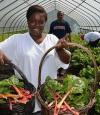Site Search
Copyright © 2024 Highbrow Magazine
by Nir Eisikovits
Banning TikTok would benefit Meta and Google, their parent companies, but it wouldn’t benefit national security. People would still be exposed to as much junk news as before, and experience shows that these social media platforms could be vulnerable to manipulation as well.
Read more...by Garrett Hartman
If relatively simple songs are being underanalyzed, we also lose the power in more complicated expressions of protest in songs like Springsteen’s “Born in the U.S.A.” The song’s triumphant chorus, which chants “Born in the U.S.A.,” often overshadows its darker verse.
Read more...



























































































































































































































































































































Copyright © 2024 Highbrow Magazine






